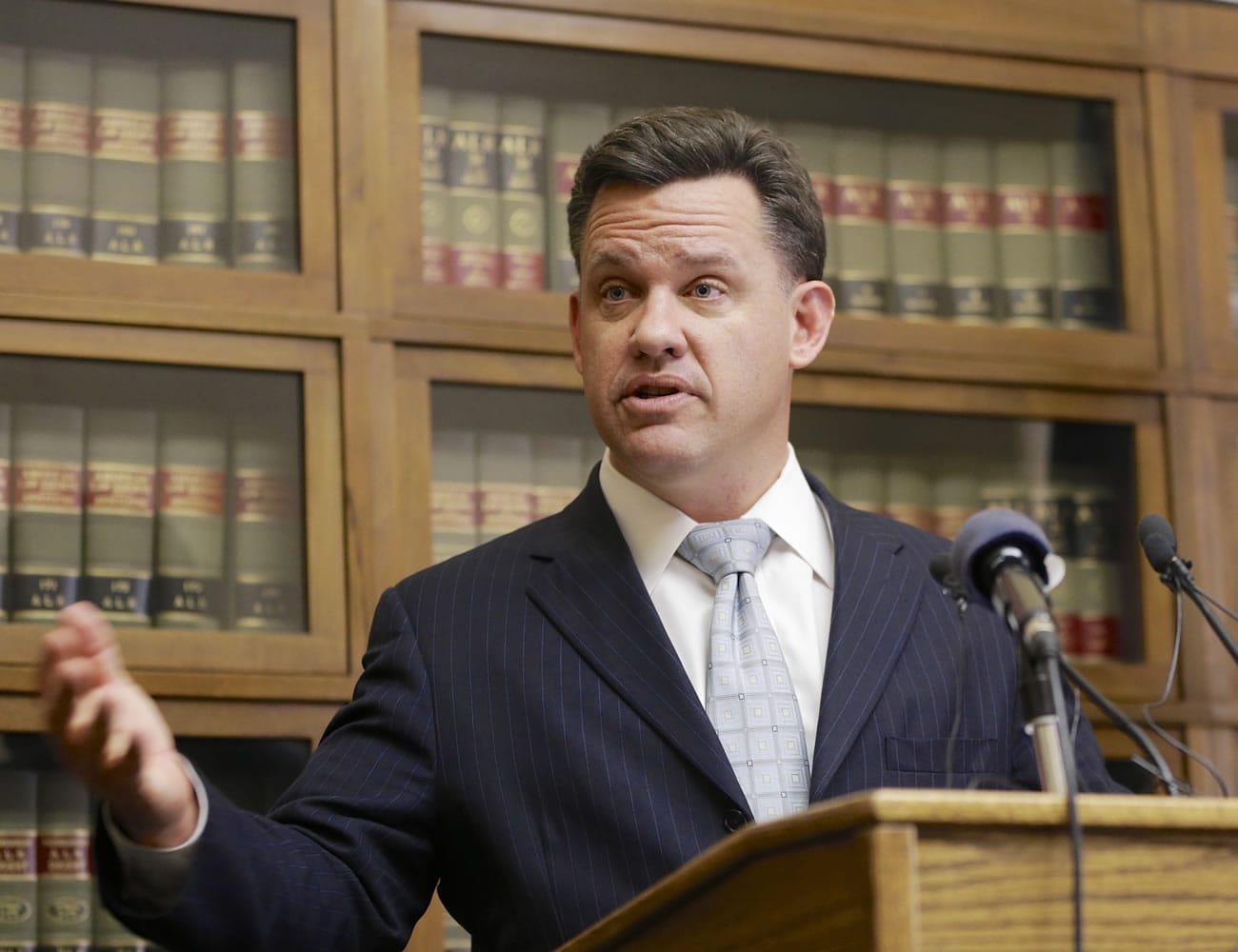LINCOLN, Neb. — Nebraska and Oklahoma on Thursday asked the U.S. Supreme Court to declare Colorado’s legalization of marijuana unconstitutional, saying the drug is being brought from Colorado into the neighboring states.
Nebraska Attorney General Jon Bruning said the states filed a lawsuit seeking a court order to prevent Colorado from enforcing the measure known as Amendment 64, which was approved by voters in 2012. The complaint says the measure runs afoul of federal law and therefore violates the Constitution’s supremacy clause, which says federal laws trump state laws.
“This contraband has been heavily trafficked into our state,” Bruning said at a news conference in Lincoln. “While Colorado reaps millions from the sale of pot, Nebraska taxpayers have to bear the cost.”
In a policy statement last year, the U.S. Justice Department noted it doesn’t have the resources to police all violations of federal marijuana law. It laid out eight federal law enforcement priorities that states need to protect if they want to authorize “marijuana-related conduct.” They include keeping marijuana in-state — something Oklahoma and Nebraska says Colorado has failed to do.
Oklahoma Attorney General Scott Pruitt said Colorado’s decision has hindered his state’s efforts to enforce its anti-marijuana laws.
“As the state’s chief legal officer, the attorney general’s office is taking this step to protect the health and safety of Oklahomans,” Pruitt said in a statement.
Washington state also has legalized pot, but Bruning said it wasn’t included in the lawsuit because it doesn’t share a border with Nebraska or Oklahoma.
Colorado Attorney General John Suthers said the lawsuit was without merit but that he was not totally surprised by it because neighboring states have expressed concerns about Colorado marijuana crossing the border.
“However, it appears the plaintiffs’ primary grievance stems from non-enforcement of federal laws regarding marijuana, as opposed to choices made by the voters of Colorado,” Suthers said in a statement in which he said Colorado would vigorously defend its law.
Bruning, a Republican, blamed U.S. Attorney General Eric Holder for failing to enforce the federal law’s ban on drugs in Colorado.
Legal scholars say it’s too early to know how the Supreme Court might handle the case or if it will even accept it.
“Right now, these regulations exist in legal no-man’s-land,” said Sam Kamin, a University of Denver law professor. “It’s incredibly unusual for a state to be suing another state. (The lawsuit) certainly was a surprise to me given the movement at the federal level, which seems to be in favor of allowing states to experiment.”
Brian Vicente, a Colorado attorney and legalization advocate who wrote Amendment 64, said the challenge is “political grandstanding” without merit. He said 23 states have enacted medical marijuana laws, and none have been overturned because of federal law.
“I think it shows they are on the wrong side of history,” Vicente said. “Colorado voters passed this measure, and more and more states are passing these laws. If the attorney general has a problem with how federal laws are being enforced he should bring that up with the U.S. attorney.”




